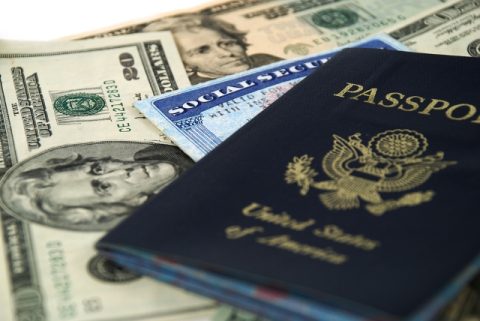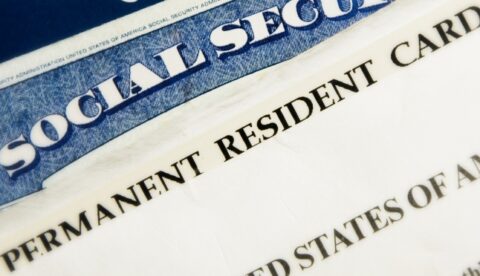Economics

Skilled Immigrants Come Through All Immigration Channels
Note: Today’s blog features the oral testimony of Benjamin Johnson, Executive Director of the American Immigration Council before the House of Representatives, Committee of the Judiciary, Subcommittee on Immigration and Border Security today. Mr. Chairman and members of the committee, thank you for the opportunity to appear before you today and provide testimony on behalf of the American Immigration Council, a non-profit educational organization that for 25 years has been dedicated to increasing public understanding of immigration law and policy and the role of immigration in American society. Read More

Building Bipartisan Bridges in Congress for High-Skilled Immigration and Entrepreneurship
Tomorrow, the House of Representatives will hold a hearing to discuss, “Enhancing American Competitiveness through Skilled Immigration.” The hearing is likely to highlight both the bipartisan support for high-skilled immigration reform, and a series of new bills that would increase the supply of STEM visas. Read More

Business and Labor Announce Breakthrough on Immigration Reform
One of the most contentious issues that has stymied past immigration reform proposals is the divide between business and labor over how many and under what conditions the U.S. should admit new immigrants into our labor force. Also known as the “future flow” issue, the conflict lies in the tension between business’ desire to recruit foreign workers and labor’s desire to ensure workforce protections for those working in the U.S. Read More

Can A Nation Have Too Many Smart People?
A February 8 op-ed in the New York Times entitled “America’s Genius Glut” argues that America already has too many high-tech workers, and thus does not need more scientists and engineers from abroad. It is a surprising claim that is at odds not only with the empirical evidence, but is out of touch with the dramatic shift in recent years towards a knowledge-based global economy. The United States is not actually suffering from a surplus of intelligent people, nor is it being economically drained by the presence of intelligent people who were born in other countries. In fact, the U.S. high-tech economy would not exist in its present form if not for the contributions of innovators and entrepreneurs from every corner of the globe. Despite arguments to the contrary, scientists and engineers who come to this country on H-1B visas are an integral part of that high-tech economy. Read More

Nativists Fail to Grasp Economics of Immigration Reform
This week, the New York Times gave voice to the nativist argument that legalizing unauthorized immigrants would drain the federal budget because newly legalized immigrants will start using public benefits. However, this flawed fiscal accounting overlooks the myriad ways in which immigrants, just like the native-born, contribute to the U.S. economy over the course of their adult lives. As workers, they add value to the economy through their labor. As taxpayers, they fund government services and programs at the federal, state, and local levels. As consumers, immigrants purchase goods and services from U.S. companies, big and small, sustaining U.S. jobs in the process. And, as entrepreneurs, many immigrants create jobs through the businesses they establish. In other words, the economic contributions of any person, immigrant or native-born, come in many forms and span a lifetime. Read More

Politicians Invent Doomsday Predictions About Immigration Reform
Nativists are rarely encumbered by facts. By its very nature, nativist rhetoric is based on stereotype and mythology, not empirical evidence. Regrettably, some of our elected leaders in the House of Representatives and the Senate have embraced the mirage of nativism as they embark on a crusade to derail any meaningful reform of the U.S. immigration system. More precisely, anti-reform politicians have been issuing doomsday predictions about what will happen to the nation if a legalization program is created for unauthorized immigrants already living in the United States. It comes as little surprise that these predictions have no basis in reality. Read More

Why Should We Support a Legalization Program for Unauthorized Immigrants?
As the immigration debate heats up in Congress, the central question for much of the American public will be whether or not to create a pathway to legal status for the 11 million unauthorized immigrants now living in the United States. In formulating an answer to that question, however, it is necessary to ask two others. First, exactly who are the unauthorized immigrants who would be attaining legal status? Secondly, what would the impact be on the U.S. economy were so many unauthorized immigrants to be legalized? The answer to the first question is relatively simple: unauthorized immigrants are just like everybody else; they are adults and children, mothers and fathers, homeowners and churchgoers. The short answer to the second question is that legalization would be a stimulus to the U.S. economy. Workers with legal status earn higher wages, and these extra earnings generate more tax revenue for federal, state, and local governments, as well as more consumer spending, which sustains more jobs in U.S. businesses. Read More

Immigrants Add Billions to the Arkansas Economy
A perennial question in the immigration debate is whether or not immigrants contribute more to the economy than they cost. That is, do they add more economically as workers, taxpayers, consumers, and entrepreneurs than they “consume” in public education, public healthcare, and public benefits? In some ways, this question is misleading. Education and healthcare are social investments that pay future dividends; they are not merely fiscal expenses. Nevertheless, it is a useful exercise to take the question at face value and do the math. The result, contrary to the convoluted arithmetic of anti-immigrant activists, is overwhelmingly positive. Immigrants add far more to the economy than they take away. And given the aging of the native-born population, the contributions of immigrants (and their children) will only increase over time. Read More

Illinois Legislature Votes to License all Drivers in the State
On Tuesday, the Illinois legislature passed a bill to allow state residents without legal status to obtain a three-year renewable driver’s license. The law will create tens if not hundreds of thousands of newly licensed drivers. The bill, which awaits the Governor’s promised signature, will make Illinois the third state after New Mexico and Washington to allow unauthorized immigrants to obtain driver’s licenses. (Utah allows undocumented immigrants to apply for driving privilege cards.) Read More

America’s Aging Crisis Will Only Grow Worse With Declining Immigration
As a recent story in The Economist notes, the conventional wisdom has long been that “because Americans have so many babies and welcome so many immigrants, they had more room to deal with the coming burden of pensions and health care for the elderly.” But that is no longer the case. The story goes on to point out that “the savage recession of 2007-09 and its aftermath…have weakened those demographic advantages. America’s fertility rate has been falling since 2007, as has net immigration.” In other words, there are going to be fewer working-age, tax-paying adults to support the rapidly growing number of elderly Americans. Read More
Make a contribution
Make a direct impact on the lives of immigrants.
